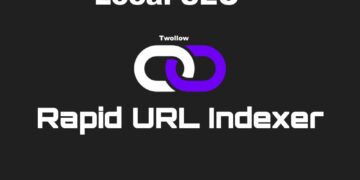Construction management software programs refer to computer tools you can use to automate and ease projects in the building site or company. These programs will ensure that you simplify every stage of the construction process so as to optimize and analyze.
Choosing the right software system to operate your business is a big decision. Unlike other solutions, which firms use to carry out projects, software needs a change in how things should be done.
Normally, purchasing a new heavy machine will not need the implementation of training programs and a major overhaul of processes, though buying a construction management software solution often does. Important steps for choosing the right software solution, whether it is non-integrated or integrated, involve considering the following strategies:
Research Thoroughly
Before you start, be sure to create a list of the biggest information issues you currently experience and note the more burdensome ones. Think about your future goals and growth for your construction company. Some software features might not be important for now, but they will down the road. For instance, the RFI tool will allow you to target customers in a new marketplace. You can arrange these needs from most to least important.

With this, you will have a rough idea of whether your scheduling and construction management software might be fairly easy and requires you to have each bell and whistle. You may also learn if a general application may work. At this point, you may start collecting all the details concerning specific vendors and programs.
And suppose you need to find IT job scheduling software. You must search for one that has been tested and provides a free trial, so you’ll know it’ll be the best fit for your construction company and can match your business’s growing needs and demands. After all, it’s going to be a considerable investment.
You need to be able to tell if specific software will be effective in streamlining processes from pre-construction to project handover. This way, you won’t miss any crucial detail that may lead to delays and bigger challenges.
Evaluate Ease of Integration and Deployment
One important consideration you need to pay attention to is the presence of an intuitive customer interface. Progressed features, which are challenging to understand, will make construction projects more complicated.
Be sure that a software program you want to buy can easily integrate with your existing procedures and systems, including Excel. Although a simple linking of a digital system to Excel spreadsheets might sound a lot, it can streamline your projects.
Put Reporting and Analytics into Consideration
It is best to invest in a software solution that will effortlessly allow you to issue, capture, and process details with a picture attachment on your plans, minus the effort of long admin hours. The capability to generate detailed or clear reports to the entire team of contractors increases overall productivity as well as efficiency.
In addition, a software solution may gather details in your dashboard, allowing you to efficiently and quickly pin down improvement areas and drill down on recurring problems in real-time.
Consider Deliverable and Milestones
As a manager, you may have noticed how coming up with milestones can determine the way your project will advance. It is important to develop clear-time boundaries when it comes to all deliverables for the sake of projects.
A good software program from solution providers, such as Jonas Premier, should allow you to set milestones so as to have things done around the clock, where you may break down big projects into smaller ones. Incorporating milestones may help your creative team members to keep sight of deadlines while staying on top of schedules.
Compare the Features
Construction management software solutions provide a wide range of features, depending on the kind of building company. For example, as a contractor, you must look for a software program, which concentrates on accounting, document management, personnel tracking, and scheduling, just to mention a few.
You will also need stronger software programs with comprehensive features, including change orders, dispatching, blueprinting, and bidding capabilities. Other features that you can look at and compare are:
- Meeting minutes
- Purchase orders
- Multimedia and photos
- Database of builders and suppliers
- Editable terms and contracts
- Financial and accounting reports
Test Before Buying
Think of the step you went through finding a warehouse or office space. All too often, the flaws or issues only become very apparent after you sign a contract and move in. When it comes to choosing a software solution, you must have a chance to ‘test before buying.’ This might be a demo, selection of training programs, or workshop.
Always consider how the solution you want to match with the current team dynamics may adapt to each other. When testing, also consider what the program is delivering for your business in value and terms.
Know Your Options
Apart from choosing cloud-based software, be sure to make comparisons between the existing options in the marketplace. Basically, this is a pivotal aspect, which you should not overlook. When comparing, it would be best to sign up for free and no-obligation trials. This way, you will be able to explore every feature and compare them.
Free trials are also effective to help you know whether a particular software solution will meet all your expectations. You might as well include some of your team members to understand features so as to properly manage your software program and tasks.
Pay Attention to Customization
A great software program should allow you to customize your experiences with custom fields and exports. This basically means that you need to make small changes so as to let your program reflect your own needs and preferences.
Some programs can let you change colors and upload logos, but the most important part of customization include data columns and reports. This will offer you flexibility in the way you want to show details to stakeholders, in turn, giving you knowledge regarding what your business needs to manage every project.
Check the Costs and Communication
The costs for project management solutions might differ from one provider to another. Some of them can cost around $100, while others will go beyond that. When comparing the costs, it may also be a great idea to check the adoption and implementation price.
Importantly, determine whether the software fits your collaboration and communication style of your team members. Anything which does can enhance those. A tool that doesn’t might have a negative impact on collaboration and communication.

The Bottom Line!
Every time you buy a software program for your building site, ensure you plan for the future. For you to invest wisely, be sure to go for software depending on where you see your business in ten years to come.
Between ongoing costs, training expenses, annual support contract, and purchase price, a construction software program may be expensive. This is why it is worth considering some of these strategies, if not all, to make the right choice.





























































